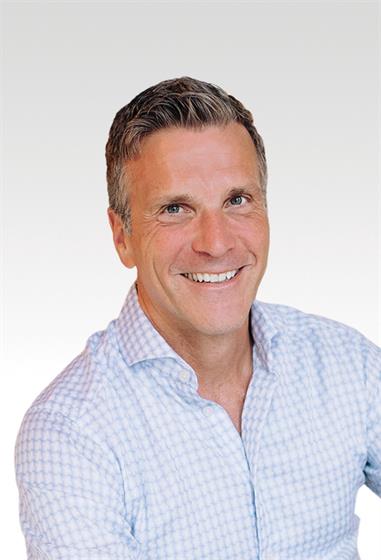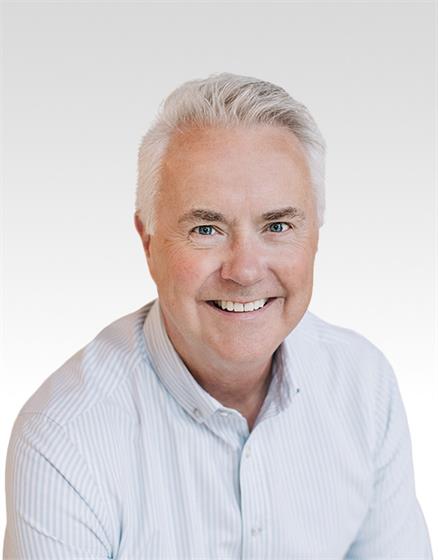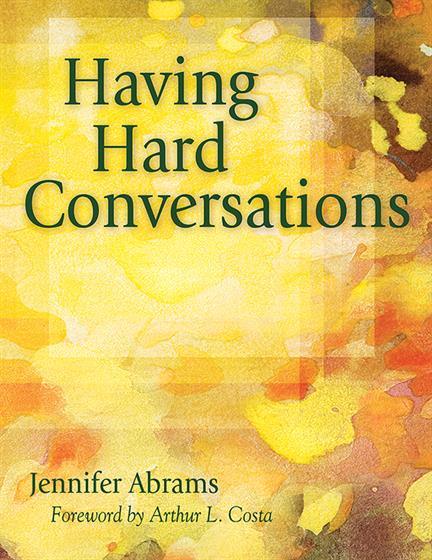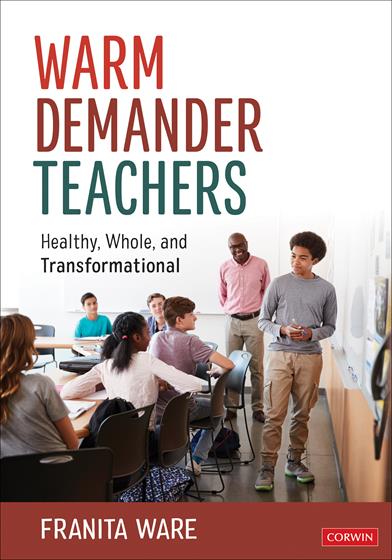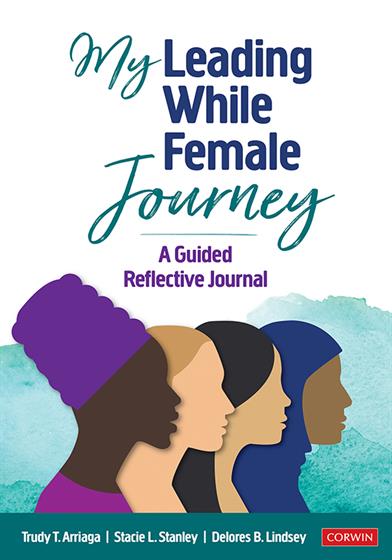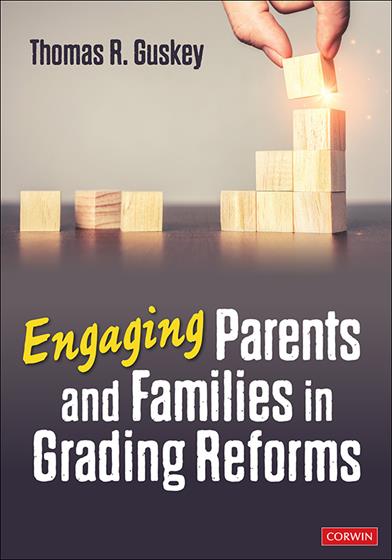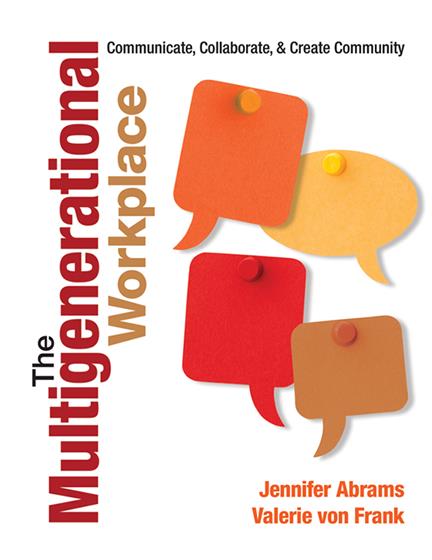JENNIFER ABRAMS: The mindset, the courage, whatever, to simply say, this is how we, and I mean we, the community, the families,
the school, this is how we're going to work with each other. These are the expectations that we have.
And we're going to develop ourselves so that when we come to that parent communication, both sides are aware
of how we hope to engage with each other. We are going to be clearer about how we're going to deal with our
discipline. It's all of that.
It's having a sense, a groundedness, a steadiness, a clarity around processes and expectations so that we're not
adding additional-- it feels like fires because they're adding even more emotion to it. You know what I mean? And
they're taking more time with it.
And I think if we worked on ourselves a little bit more and the cultural expectations, and I say, culture of the
school, I think we'd be in a better place. I'm hoping, I'm crossing my fingers.
NARRATOR: Welcome to Corwin's Leaders Coaching Leaders podcast, with hosts, Peter Dewitt and Michael Nelson. This
podcast is from Education Leaders for Education Leaders. Every week, Peter, Mike and our guests get together to
share ideas, put research into practice, and ensure that every student is learning not by chance, but by design.
PETER DEWITT: Jen Abrams, welcome to the Leaders Coaching Leaders podcast.
JENNIFER
ABRAMS:
I am so glad to be here.
PETER DEWITT: It is so good to see you.
JENNIFER
ABRAMS:
I know. It's good to see you, friend. Been a long time.
PETER DEWITT: I know. We met 12 years ago, I think when--
JENNIFER
ABRAMS:
Or more.
PETER DEWITT: Yeah, when we started working for Corwin and all of that stuff. So pretty fantastic.
JENNIFER
ABRAMS:
Long, long time ago. Been a long time and been following your work. And now with Michael following your work
and the amazing things that you guys are doing. So glad to be here.
PETER DEWITT: Well, thank you, but we're here to talk about you. So let's do that. You are so well known for the art of
conversation, having hard conversations. And that is so incredibly-- it's just strange that it's still a huge issue.
There's just lots of research to show that if we don't feel trust with somebody, then we might stay away from a
conversation.
Vivian Robinson talked about. If we do have trust as a leader with the teachers we work with, we might take two
routes. If we're going to have a conversation with a teacher, we might come hard at them, or we might not even--
we'll talk around the issue.
But we want to talk about one of your latest books that just came out a few years ago calledStretching Your
Learning Edges, Growing Up at Work because this is profoundly important to the work that Michael and I do, but a
lot to the work that school leadership teams and district leadership teams do. So talk to us a little bit about this
book, Stretching Your Learning Edges.
JENNIFER
ABRAMS:
So if I had had a sense of what I needed to do at the very, very beginning of my consulting and writing, I would
have written this book first. I started with hard conversations because that was the thing that I was noticing
people needed.
And as that happened and I wrote about it, I backed up and said, I wonder if prior to hard conversations, we need
clarifying conversations. And from there then I said, I wonder if we're in a culture, a school culture where people
are having conversations and are professional in any type of conversation.
And that's where this book comes in. It's the idea of we have credentials in how to teach. We have credentials in
how to understand grade levels or subject areas. We do not have credentials in how to talk to adults. A lot of us
don't. And leaders have more experience with that because that's what we're focusing on. But that concept of
adult to adult communication in schools is, I think, a place where we need to focus more.
So what I started writing in 2021 during COVID was this book, which is about how do we create a professional,
healthy learning culture in which the adults that are in a school system know how to work on their own inner talk,
as well as really work on how to do the interpersonal talk. And that's where I talk about growing up at work,
growing our capacities, our skills, looking at our mindset so that we are the adults at work and what that means.
So that's where the book came from.
MICHAEL
NELSON:
I've been fascinated by your work, and it's really an honor to meet you. And I love the banter between you and
Peter, and the friendship and professionalism that the two of you share. And so thanks for bringing me into the
fold of this interview, number one.
Peter shared recently, hey, Mike, you need to look at or watch the movieConclave. And so I watched it one
evening. And in that movie, there was a line, and I just had to pause it on my TV. And my wife, she just rolls her
eyes. What was just said that you need to talk about in a workshop, Mike? It's like, OK, well, here we go, Brit. And
the quote in Conclave was "Certainty is the enemy of unity."
And in your book, you talk about suspending certainty as adults working together. Could you expand a little bit
more on what you-- and so as a result of that one quote, Peter and I have bantered about certainty and
uncertainty. We've included it in our workshop. So yes, Brit, I did put it into my workshops or our workshops,
Peter, and we have used it, and it's been an engaging conversation.
JENNIFER
ABRAMS:
So that idea of our way is a way, it isn't the way. And that idea of how do we inquire as much as advocate, and
where might someone else have another angle that we, on a problem, on an initiative, on a way to teach a
lesson, on a way to message something to the community that we hadn't thought of because we all have blind
spots.
So the idea of, I'm certain we need to go down this route in this way, you got to stop and say, ask somebody, how
do you see this? Where's my blind spot?
MICHAEL
NELSON:
So, as you know, Peter and I have really been studying and exploring certainty and uncertainty, and what does
that mean for leadership? And in your book you really talk about embracing uncertainty. What does that mean
for leadership?
JENNIFER
ABRAMS:
This idea of suspending certainty, it came from this idea that we advocate so much, we don't inquire enough. And
we need to recognize as leaders that we have a way, we don't necessarily have the way.
Now, I am not suggesting that you shouldn't be certain to stop at a stop sign, and I'm not suggesting that there
are moments when certainty and just a clarity of action is the right thing. There are also just moments in
leadership, where we need to be more in inquiry before we make decisions.
So to ask, what am I not seeing? Where do I have a blind spot? What else am I not considering? That idea of
suspending certainty is a piece, I think, that will allow for a gray to emerge, to not be just so black and white, and
allow for other voices to come in.
And it requires a sense of listening. It requires a strong stomach and an ego to be able to open to other people's
points of view. But I think you're a better leader when you suspend in those moments, that it's important that
you suspend certainty. So do it.
MICHAEL
NELSON:
I often think of certainty, the opposite of just remain curious. And keep all of those-- as you remain curious, keep
all of those skills that you've had and learned in terms of pausing and reflecting in conversations right there at
the forefront.
JENNIFER
ABRAMS:
I have in the book, it says, having an appropriate sense of self-regard, keeping things in perspective, knowing
you always don't know the bigger picture, and being able to manage yourself, to be in that space of curiosity in
moments of stress and ambiguity, in ways that model for other people, because that's really an important thing
for all of us to do in a school.
MICHAEL
NELSON:
If you build that collective type of culture, what you can transform for students.
JENNIFER
ABRAMS:
It'd be super cool. [CHUCKLES]
PETER DEWITT: I feel like it's a-- and there's a delicate balance there. I'm always concerned when we get called experts, when
you're the experts coming in, I've never been comfortable with that whatsoever because I feel like Michael and I
go into things as a learner. We go in as learners.
And that, quite honestly, makes-- we do a lot of long-term work. So most of our work is long term. And when
we're facilitating or coaching, I feel like going in as a learner, we've learned so much from the people that we
work with, as opposed to this constant pressure that we're the only ones who are going to be able to teach them
something. I think we should always have that learner's mindset.
But I also feel like, from a leadership standpoint-- and, Mike, you must have felt like this at times, too. There is
that pressure on the part of leaders that people do look to you for answers as well. So finding that, it's got to be
hard-- it is hard to find that delicate balance so you don't seem like-- because you can quickly lose credibility too.
MICHAEL
NELSON:
I think coming forward not with a blank piece of paper, is something a leader can do. But it's what the leader
does with that non-blank piece of paper, when they begin to share and interact with it, and knowing the three
little pigs have always been important in my head as a leader, of straw, wood, brick. I'm not bringing this blank
piece of paper as a brick design, where I have not opened, and I'm not curious to see what you think. It's really
coming as a straw, but there is that ebb and flow of things, because you can't just make all decisions with a
group of 600 staff members. There is some leadership that does need to occur.
PETER DEWITT: By the way, I love that. I've never heard you use that before.
JENNIFER
ABRAMS:
Well, there you go. Look what we're learning.
PETER DEWITT: I know. Sorry, I didn't mean to just drop that bomb, but I love that! That's fantastic!
JENNIFER
ABRAMS:
You are fantastic, Michael.
MICHAEL
NELSON:
There you go.
JENNIFER
ABRAMS:
We're learning every day.
MICHAEL
NELSON:
So, folks, that's the end of our podcast today. For more tips from the three little pigs, please join us next episode.
PETER DEWITT: Don't make fun of me for giving you a compliment. See, Jen, this is what happens.
JENNIFER
ABRAMS:
Yes.
PETER DEWITT: I know you extremely well. Mike and I know each other extremely well. And now we're just going to air
everything right here on the podcast. No, I just think that's a fantastic way of looking at it. I like that balance.
Jen, one of the things we want to ask you is, within the book inStretching Your Learning Edges, you talk about
five different ways that we can move forward. Could you explain those a little bit?
JENNIFER
ABRAMS:
When I looked at the work that I have been doing since I was a teacher at 22 and now becoming 58, there were
five places I felt as I was a teacher as I was a coach, as I was a professional developer, as I've been a consultant,
all over, that were useful places to grow the adults.
One is to know our identities. So I'm not saying you have an identity and you can't change and you don't have
multiple. You don't contain a multiplicity. But that idea of what about your biases? What about your upbringing?
What about your country of origin? What about your work style? How might knowing more about you and
knowing more about others help you collaborate more effectively?
Second one was suspend certainty. How might we do that more often? Because our way is a way, not the way.
One is to take responsibility not just for our work product, but for our interactions. And how can we have hard
conversations in humane ways? How can we express our concerns before they escalate to complaints? How
might we apologize better?
One is to build our resilience and our resiliency. I have the identity certainty, so I call it resiliency. So that we
don't pig-pen. And what I mean by that is there are moments when we need to take care of our emotional and
psychological hygiene so that we don't become the Peanuts character, Pig-Pen, and bring dust into interactions.
Not saying you shouldn't express yourself, but you have to manage ways to do that, so that you are healthy for
the group as well as yourself. All because, fifth facet, we need to engage in reciprocity to be a value-add to the
team, and hopefully every team member is then a value-add to you.
So this concept of working on our group behaviors, so that we can do that, some of it is individual work, some of
it is inner work, some of it is interpersonal work. But also to recognize you're a part of the group.
And I've had new teachers say to me, you want me to teach and now be nice to other adults? That's a lot. I've
had people say to me, I don't know if I can do all of this. And that's just really complicated. And I will say to them,
which part of this do you not think is important for the collective? And they're like, yeah, good point.
So I truly believe for us to grow as a profession, for us to have a healthy, professional adult learning culture,
these are five places that we need to develop ourselves.
MICHAEL
NELSON:
I would love to dive deeper into one more of those maybe a little bit more. Definitely it's a fantastic, fantastic
book.
But as Peter and I have been engaging across Canada and in North America and across the United States in just
in the last, let's say, 60 days, we see a new-- I'm going to use the word hurting. And I don't know if that fully
describes among our leaders. And it's almost distracting them, their focus from student and staff learning into
this hurting. So it's that pig pen effect that you talked about just a minute ago.
So are there strategies you might share with our listeners right now, knowing the time that we're in politically,
and so where some of the hurting is coming from in terms of some policy shifts? And how might you respond to
that?
JENNIFER
ABRAMS:
I think individually, we need to work on our emotional hygiene so we're healthy for ourself. And if that means that
we need to have support, we need to meditate, we need to do all that individually, it's essential. Self-care or well�being at this point isn't like, oh, it's a nice to have.
And my colleague who works in Africa, but works internationally, Kirsten Pontius, was just looking at the research
around how essential our development of our inner strength is right now, and our well-being. That's one piece.
And we can talk about just the work that I encourage people to do and the support that I encourage people to
get.
The other piece, though, is about the expectation in the school, that I think would also help individual well-being,
is we collectively have an expectation that each one of us work on managing our capacity to deal with ambiguity,
that we work on sustaining our own commitment to the work. And we try our best not to pig-pen and emotionally
pollute, and I talk about it as is emotional pollution, the collective or the teams that were on.
Lots of people have pushed back on me and said, are you suggesting we be performatively professional? Are you
suggesting we can't be authentic? What if we have a feeling? What if we want to cry? What if we want to yell?
And I'm not discounting that we have big feelings and that we need to find places to express that.
What I know, and I was just reading Chase Mielke's blog today. There's complaining and then there's venting to
process, and then you have to progress. So he talked about this idea of what's next. So how can we develop the
skills to articulate our concerns before they escalate to pollute and be complaints?
So there has to be both your inner work as a leader, and then an expectation for the teams to-- it sounds so
diminishing. To read the room, to really say, is this the right place to express this? And in what ways might this be
helpful? so that there's a collective and also an individual obligation to grow.
PETER DEWITT: I know. All of it, I love. One of the reasons why I love working with Mike is because when we do collaborate--
because we often-- he'll be coaching on his own or running a workshop on his own. I might be doing my own
thing. But when we actually come together and we get to facilitate together, it really is about reading the room,
but it's somebody helping me read the room. So if I'm the one leading the discussion at that point, he's the one
coming to me to give me feedback. When he's leading the room, I'm coming to give him feedback.
But part of what you were saying, too, when it came to the self-awareness part, Pete, let's be clear. When we say
leader, we mean teachers too, because it's about self-regulation.
Marc Brackett's work, we will usually use Marc Brackett's mood thing at the beginning. Sorry, I'm not being very
articulate right now. And we use Mentimeter for people to anonymously tell us how they're feeling in the room.
And then we often talk about we've got people who are feeling anxious, we've got people who are feeling sad.
We've got people who are feeling depressed today. What can we do as facilitators to help get them out of it or
help move them into a different direction?
And so when we're coming together as a team, it is our responsibility to be in charge of ourselves, but also
understand how we're impacting the team. And you and I were talking about this with Mike before we started
recording. I've been doing a lot of that work around Chatter and Think Before You Speak, because I have a
negative voice that will come in and just say, Peter, you're a loser. I can't believe you couldn't get that today.
That kind of stuff, I do have that negative self-talk.
And the book Don't Believe Everything You Think is really about the intersection between thoughts and thinking.
Thoughts are neutral. Thoughts are what come to us all the time. Thinking is what we actually do about it.
And so what's even equally as important to what you're talking about, when it's the self-awareness piece, is that I
need to be self-aware, that if I have a good relationship with you, but a bad one with Mike, and we're both on the
same team, or I don't have trust for Mike and I have trust for you, Mike's going to come up with an idea, and I
might instantly think that's a bad idea. Because the thinking I have on the thoughts that are coming to my mind,
because of my relationship with Mike, are going to be negative. But if you come up with something positive, if
you come up with an idea, the thoughts that come to my head, I'm going to turn those into positive thinking.
So this whole self-awareness piece is also about really understanding why am I feeling the way that I'm feeling?
Is this factual or am I making the story up in my head? Because we're all guilty of being able to do that.
And that's what you said so powerful, Jen, because it's really about just understanding how to come together with
dignity. We can still have all the feelings.
And we interviewed Tim Shriver for this season as well. And he has the Dignity Index. We can talk, we can
disagree, we can have different thoughts, but we have to also keep ourselves in check in a way that we can do
all of this work with dignity as well. Does that fit into it?
JENNIFER
ABRAMS:
I completely agree with you. And I've written down Chatter. It's because we're learning from each other, and I've
written down the Dignity Index. The adult capacity to manage emotions, to be self-aware, to interact in respectful
ways, we didn't necessarily develop that at the level that we needed to in our credential program. Double-down
on the challenges that we're facing right now, and we need to grow up. [LAUGHS] We need to grow ourselves to
be able to do that.
And so what you're saying about self-awareness and honoring where we're at, but then to also be able to
manage ourselves, is going to contribute to the collective, to collective efficacy. And that's why I'm always saying,
individual efficacy, individual resourcefulness is going to have a substantial influence on a collective and a team
being able to do their work.
Most leaders, and I totally understand this, given time limits, given two or three days of PD, will say, I have to just
count on all my adults to be adult. They're over the age of 18. They signed a contract. We know what we're
doing. We can't grow the adults. We have to look at the work for the kids. And I say, and how's that working for
us?
Maybe we need to spend just a little bit more time reinforcing and developing some skills that we just need even
more now than ever before. And not shame adults for not knowing. You're supposed to be mature. Why don't you
know this already?
And I know that leaders are sometimes really frustrated. Do you want to be right or effective? We need to be
much more compassionate with those who might be older than we are on our faculties, who might be new at 23
and are growing up in this particular time. Do we want to do what's right by kids? We need to grow adults. And
that's been my focus. And so that's why I'm so glad I get to talk about it with you guys.
MICHAEL
NELSON:
Well, recently we were engaged in a leadership team meeting, Jennifer, and they were talking. What kept coming
up is, well, we can't do that. We're fighting fires constantly. And when the third or fourth person said, we're
fighting fires constantly, Peter and I just tried to frame a question about what exactly does fires mean, and can
you give examples of fires? And they were talking about student discipline, and they were talking about parent
communication or upset parents or parents coming in and challenging school policies on different things.
And I can't help but think, all of what you said, the buckets of the individual first and then the collective, I almost
want this third stakeholders or communication with stakeholders and how that would help put out those fires or
be a proactive stance rather than reactive to the fires that is not allowing them to do the work. Does that make
sense?
JENNIFER
ABRAMS:
It makes perfect sense. Makes perfect sense. And the mindset, the courage, whatever, to simply say, this is how
we, and I mean we, the community, the families, the school, this is how we're going to work with each other.
These are the expectations that we have.
And we're going to develop ourselves so that when we come to that parent communication, both sides are aware
of how we hope to engage with each other. We are going to be clearer about how we're going to deal with our
discipline. It's all of that.
It's having a sense, a groundedness, a steadiness, a clarity around processes and expectations so that we're not
adding additional-- it feels like fires because they're adding even more emotion to it. You know what I mean? And
they're taking more time with it.
And I think if we worked on ourselves a little bit more and the cultural expectations, and I say, culture of the
school, I think we'd be in a better place. I'm hoping. I'm crossing my fingers.
PETER DEWITT: I agree because one of the things we said to them is, is it possible that people are adding to their own fires?
JENNIFER
ABRAMS:
Correct.
PETER DEWITT: People are spending time in that space because there's something they're getting out of it, or it's preventing
them from going to a place where they feel uncomfortable. So they're going to spend time over here instead.
So, Jen, we could talk forever. It is so good to see you. I feel like it is good for the soul just to talk to you because
I'm going to be walking away thinking of that chatter inside about self-regulation and all of those pieces.
But it's really important. It just goes to show that the social emotional side is equally as important as the
academic side. They are. Just what you did, they're all interrelated. So the book is called Stretching Your Learning
Edges, Growing Up at Work. And where can they find that, Jen?
JENNIFER
ABRAMS:
It's a really good question. I would suggest you go to my website, jenniferabrams.com, where if you cannot get to
it, which is under Books, and then you can link to it, find me. We are in the process, speaking of all the
transformation and the bumps and the transitions that are happening in the world right now, to making sure that
somebody on my coast of the US, which is California, is going to be able to ship that out for me. So just go to
jenniferabrams.com, and you'll get it there.
PETER DEWITT: Jennifer, always good to see you. Thank you for being on theLeaders Coaching Leaders podcast.
JENNIFER
ABRAMS:
Guys, much appreciated.
MICHAEL
NELSON:
It was great to be with you. Thank you.
[AUDIO LOGO]


